The 6th of March is Melina Mercouri Day in Greece. All the ancient sites, monuments and state-run museums in Greece are free to visit on this day. Here is some insight on this amazing woman and her legacy.

Who was Melina Mercouri
Melina Mercouri was a famous Greek actress, activist and politician. She was born in Athens on 18 October 1920, and died on 6 March 1994 in New York City, where she was being treated for lung cancer.
From an actress starting out in the 1940s, to an activist and Minister of Culture later in life, Melina Mercouri was always an unconventional, outspoken and determined woman.
Melina became a great symbol of freedom and “Greekness”, and a role model for many people. She was a free spirit, and wasn’t afraid to challenge the conservative society she lived in.
On 6th March, which marks the anniversary of her death, all state-run museums and ancient monuments in Greece offer free entrance to visitors.
Let’s find out more about this incredible woman, and why we celebrate her memory on March the 6th.

Melina Mercouri’s early life
Mercouri came from a wealthy political family. Her father had served as a Member of Parliament and Cabinet Minister in various roles. Her grandfather, who had held office as the Mayor of Athens for several years, had great influence on her.
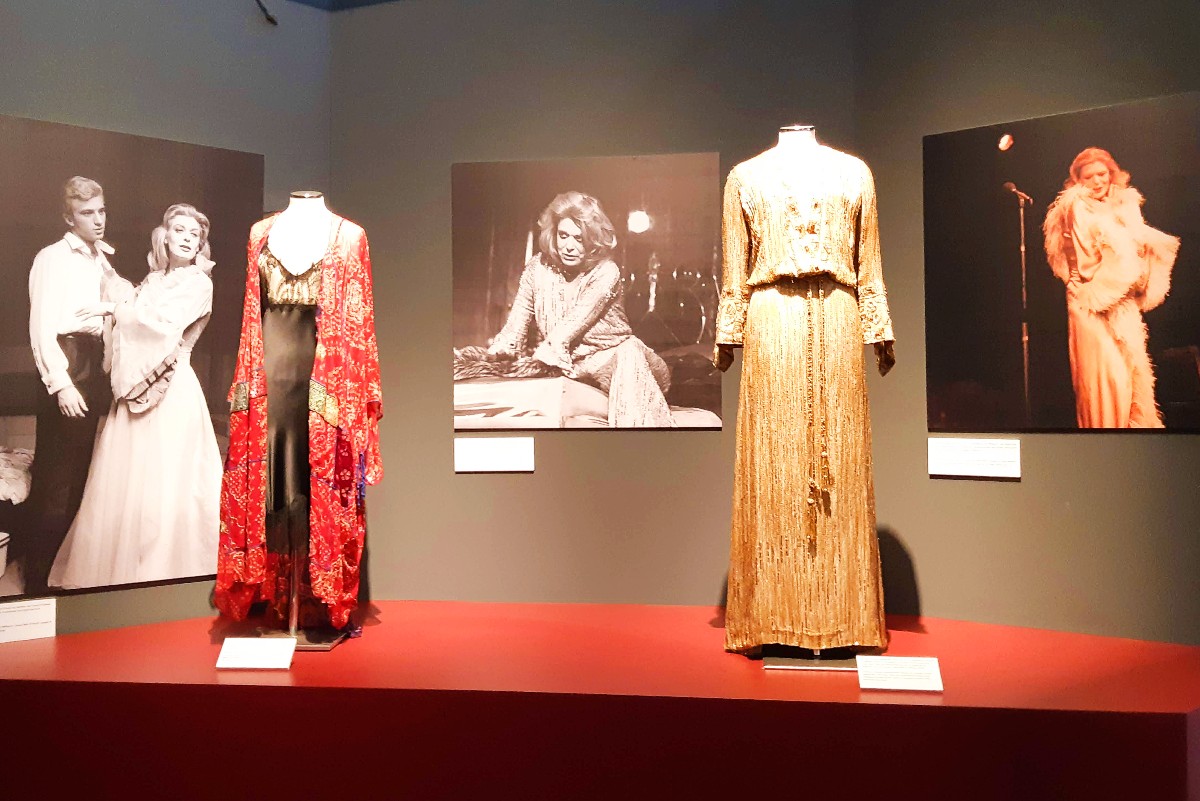
Since she was a child, Melina wanted to become an actress. In 1938, she started studying at the Drama School of the National Theatre in Athens.
A year later, at age 19, she got married to an affluent landowner, Panagis Harokopos, who was several years her senior. According to her memoirs, Harokopos had promised to support her acting career, which was one of the reasons she agreed to the marriage.
During WWII and the German occupation, while still married to Harokopos, Mercouri developed a romantic relationship with Phidias Yadikiaroglou, a wealthy businessman. Yadikiaroglou was in good terms with the Germans, and much of his wealth came from the black market.
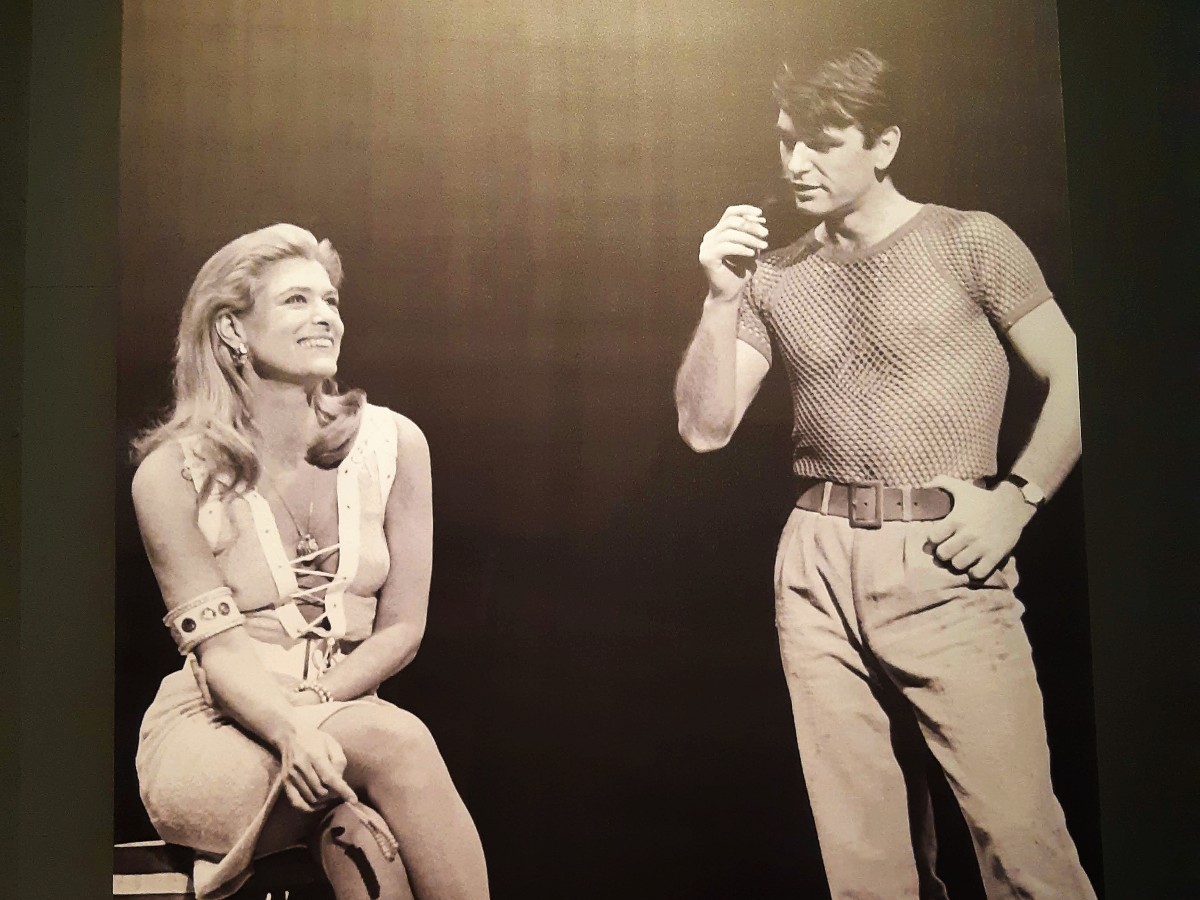
At the time, Melina was living in a luxurious apartment near Syntagma Square. She had financial support and access to food, from both her husband and Yadikiaroglou. Using these resources, she assisted many members of the Greek Resistance, including her brother and father.
Mercouri did not actively participate in the Resistance herself, something that she later admitted she had regretted deeply. Throughout her life, she faced much criticism for her provocative lifestyle at the time.
Still, because she provided financial aid to those in need, many active members of the Resistance remained her close friends.
The beginning of Melina’s acting career
Mercouri made her stage debut in Athens in 1944, and went on to appear in numerous plays. In 1949, she starred as Blanche DuBois in an adaptation of the play “A Streetcar Named Desire”. The play was her first great success, and received lots of positive comments.

Towards the end of the 1940s, she met Pyrros Spyromilios, a Greek Navy officer. They soon became a couple, and remained romantically involved for several years.
Melina Mercouri at the Cannes Film Festival
In 1955, Mercouri starred in her first film, “Stella”, directed by Michalis Cacoyannis, which was released in cinemas. The movie, one of many to follow, received special praise at the Cannes Film Festival in 1956.
During the festival, Melina met the actor and director Jules Dassin. In the following years, they worked together in a number of movies, and developed a special relationship. They eventually got married in 1966.

One of their biggest successes was the 1960 movie “Never on Sunday”, set in the area of Piraeus port close to Athens. Mercouri received an Oscar nomination for her role as a prostitute who seduces an American tourist, played by Jules Dassin.
This movie inspired the theatrical play “Illya Darling”, which was a sold-out success in Broadway in 1967-1968.
Mercouri starred in 20 movies and over 40 theatrical adaptations, both in Greece and abroad. She usually played strong, dynamic characters and heroines, often in unconventional roles – just like herself. She received nominations for numerous awards over the years.
Melina Mercouri and the Greek dictatorship
In April 1967, a military dictatorship was established in Greece. At the time, Melina Mercouri was appearing in Broadway, playing “Illya Darling”.
One evening, after she received the news that the dictators had come into power, she gave a speech against the new, authoritarian regime while on stage. She quickly became a symbol of Greece, embodying the spirit of resistance against the dictators.

As a result of this, Stylianos Pattakos, one of the leaders of the military government, renounced her Greek citizenship and banned her from returning to Greece. To this, Melina responded with the famous quote:
I was born Greek, and I will die Greek. Mr. Pattakos and the colonels were born fascists, and they will die fascists.
(Watch a short clip here, from 3:40 onwards).
Throughout the dictatorship period, Melina used her international fame to fight the colonels. She organized demonstrations and gigs in many countries, and met with European politicians and leaders, in an effort to rally opposition against the dictators.
During those years, many attempts were made to assassinate her. Fortunately, none of them was successful.
Melina Mercouri as a politician
After the fall of the dictatorship in 1974, Melina Mercouri returned to Greece. By that time, she had realized that she wanted to get involved in politics. Together with Andreas Papandreou and other people, they founded the Panhellenic Socialist Movement, better known as PASOK.
In 1981, PASOK won the national elections and Melina was appointed to be Minister of Culture, the first woman ever in this role. According to her memoirs, she had to struggle to prove herself, as many people saw her as “just an actress” and didn’t take her seriously.

She kept this post for 8 years, taking advantage of her international fame to promote Greece to European government officials. Among others, she initiated the concept of the “European Capital of Culture”, with Athens being the first Capital of Culture in 1985.
She also launched the Municipal Regional Theaters, supported the establishment of numerous cultural institutions all around Greece, and organized exhibitions of Greek cultural heritage and art all around the world.
Melina worked hard for Athens to host the Centennial Olympic Games in 1996. Sadly, she didn’t live to see it through.
Melina and the Parthenon marbles
In her years as Minister of Culture, Melina Mercouri came up with the idea of integrating all the archaeological sites of Athens. Her vision was to create an archaeological park that is free of vehicle traffic.
This is why, nowadays, we can enjoy walking around ancient Athens for free!
Mercouri also introduced free entrance to archaeological sites and museums for Greek citizens, a privilege which was terminated due to EU laws.
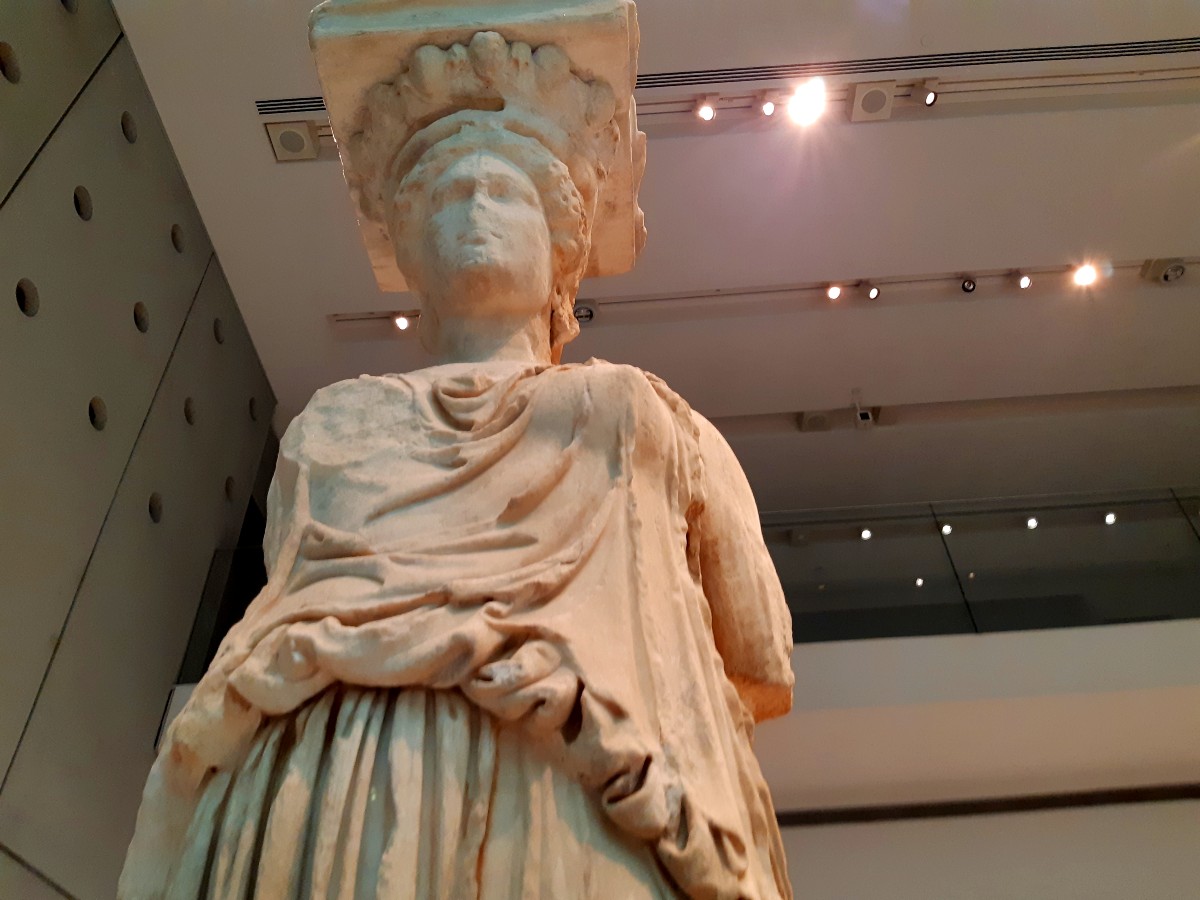
During her tenure, Mercouri pushed strongly for the return of the Parthenon Marbles to Athens. Those marbles were removed by Thomas Bruce, 7th Earl of Elgin, in the early 1800s, and are exhibited in the British Museum in London.
Mercouri had a vision for the Marbles to return to Greece, and made plans for a dedicated Acropolis Museum. Sadly, she didn’t live to see the New Acropolis Museum, which was established in 2009.
Incidentally, the original marbles from the Parthenon are still in the British Museum. People still refer to them as “Elgin marbles”.
Melina Mercouri’s funeral
A notorious smoker, Melina Mercouri died of lung cancer on 6 March 1994, in the Memorial Hospital in New York City.
Her funeral took place in Athens, and was attended by hundreds of thousands of people who went to say their last goodbye to this very special lady.

According to her wishes, she was buried in her iconic red dress, the same one she had worn during her protests against the dictators.
A copy of that dress is exhibited at the Melina Mercouri Foundation, along with other items that belonged to her. This foundation is dedicated to preserving the work and legacy of Melina Mercouri.
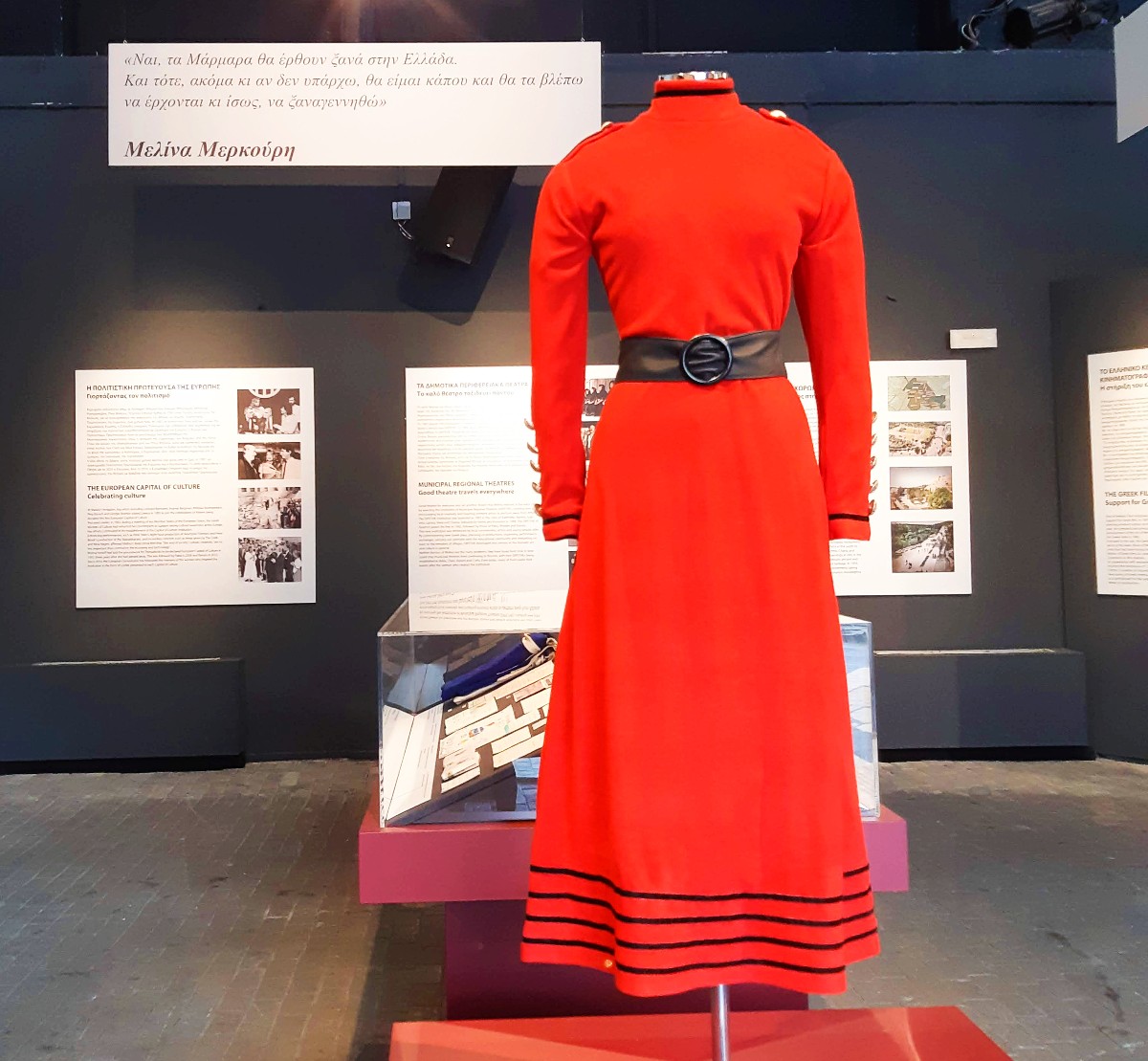
Melina Mercouri Day in Greece
Melina Mercouri Day in Greece is celebrated on 6 March. On this day, archaeological sites and public museums in Greece offer free entrance, so it’s a great chance to visit. Have a look at this guide with how to visit the Acropolis for free.
Here are some more days with free admission for the ancient sites in Greece.
Make sure to watch at least one of her movies! A few of them, like Never on Sunday (1960) and Phaedra (1962) are available on YouTube.
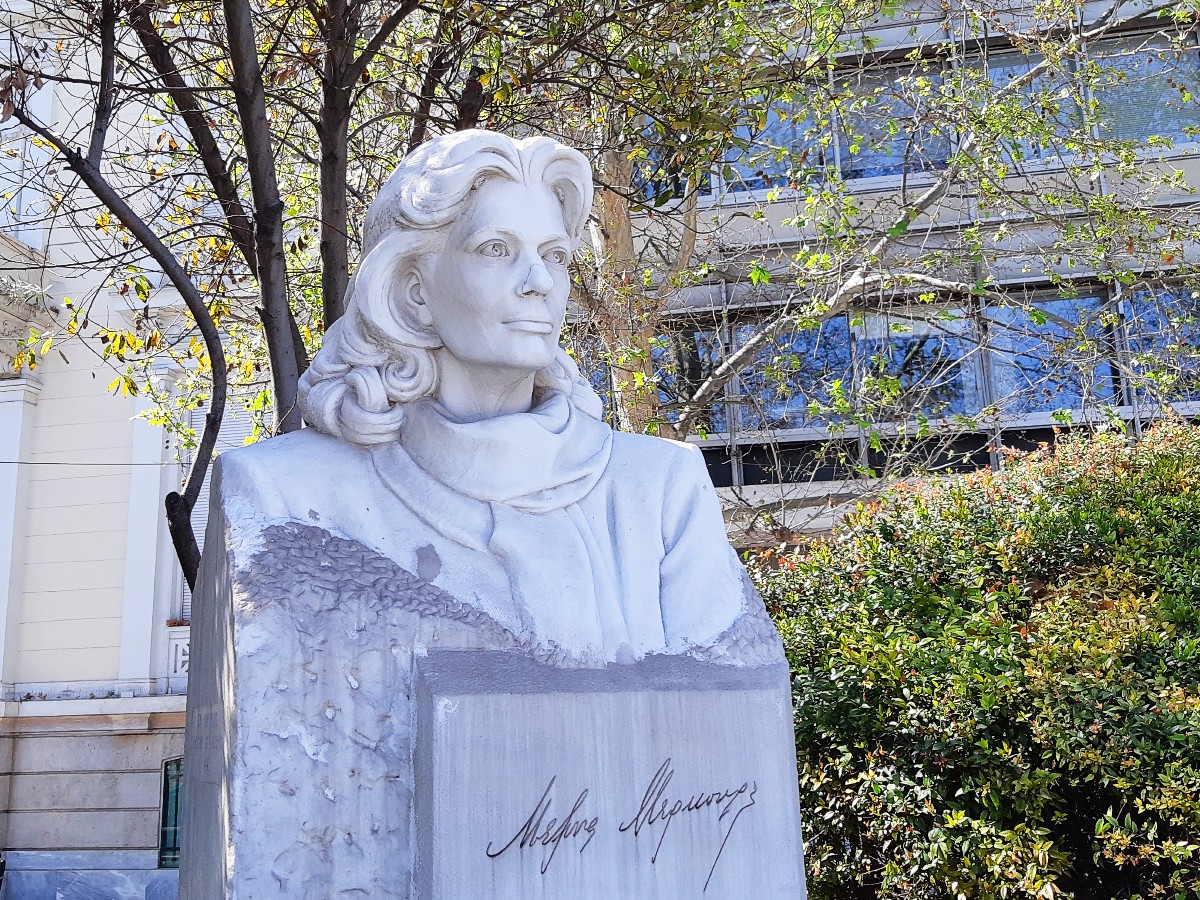
Many streets all around Greece have been named after her. If you visit Athens, you may also come across her statue, across the street from Hadrian’s Arch.
If you wander around Plaka, you are likely to come across Melina Cafe, which is dedicated to her memory. It’s a great place to have a drink (best cocoa drink in Athens!) or snack, and look at her photos on the walls.
Famous quotes by Melina Mercouri
Here are a few inspiring quotes by Melina Mercouri:
In the world over, the very name of our country is immediately associated with the Parthenon.
There are no such things as the Elgin Marbles.
I hope to see the Marbles back in Athens before I die. But if they come back later, I shall be reborn.
You must understand what the Parthenon Marbles mean to us. They are our pride. They are our sacrifices. They are our noblest symbol of excellence. They are a tribute to the democratic philosophy. They are our aspirations and our name. They are the essence of Greekness.
Enthusiasm is a wonderful thing. In South America they throw flowers to you. In Greece, Greeks throw themselves.
In Greece we’re too poor to go to psychiatrists. We have friends instead.
The biggest compliment for me is when people stop me on the street and call me “Our Melina”, when they make me feel I belong to everyone.
And, last but not least, here is a quote that pretty much sums up her life:
I did not pretend. Pretending for me is something vulgar. I just lived and spoke as I wanted, without counting anything or anyone.
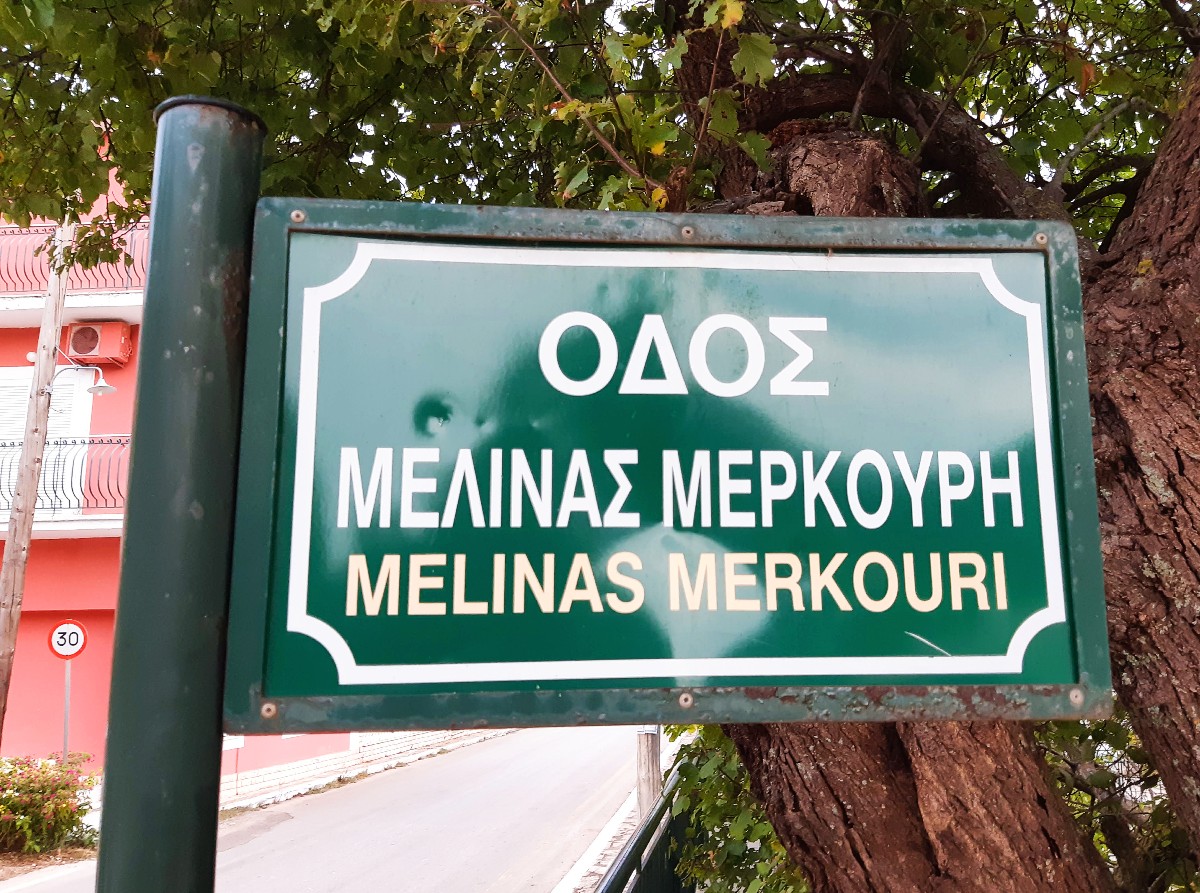
FAQs about Melina Mercouri
Here are a few more facts about Melina Mercouri.
Who was Melina Mercouri?
Melina Mercouri was a Greek actress, activist and politician. Some of her most famous movies are Stella (1955), Never on Sunday (1960), Phaedra (1962) and TopKapi (1964). She served as Minister of Culture in 1981-1989 and 1993-1994.
When was Melina Mercouri born?
Melina Mercouri was born in 1920.
Who was Melina Mercouri married to?
Melina Mercouri was married to Panagis Harokopos (1939 – 1962) and Jules Dassin (1966 – 1994).
Is Melina Mercouri still alive?
Melina Mercouri died on 6 March 1994.
How old is Melina Mercouri?
Melina Mercouri was 73 when she died.
More articles on Greek culture
If you liked this article about Melina Mercouri and Melina Mercouri Day in Greece, check these other articles:
- Movies about Greece
- 101 Quotes about Greece
- Best Greek mythology movies
- Greek celebrations, national holidays and festivals
- Greek Independence Day
- The OXI Day in Greece
- May Day in Athens
- Useful Greek words

Hi! I’m Vanessa from Athens. Melina Mercouri was one of my favourite Greek women, and I’ve always admired her free spirit and unconventional lifestyle. I hope this short article has inspired you to read more about this incredible woman! Follow me on my social media:


Wonderful!
I have loved Melina since seeing her in Phaedra as a young adult. She captured my heart